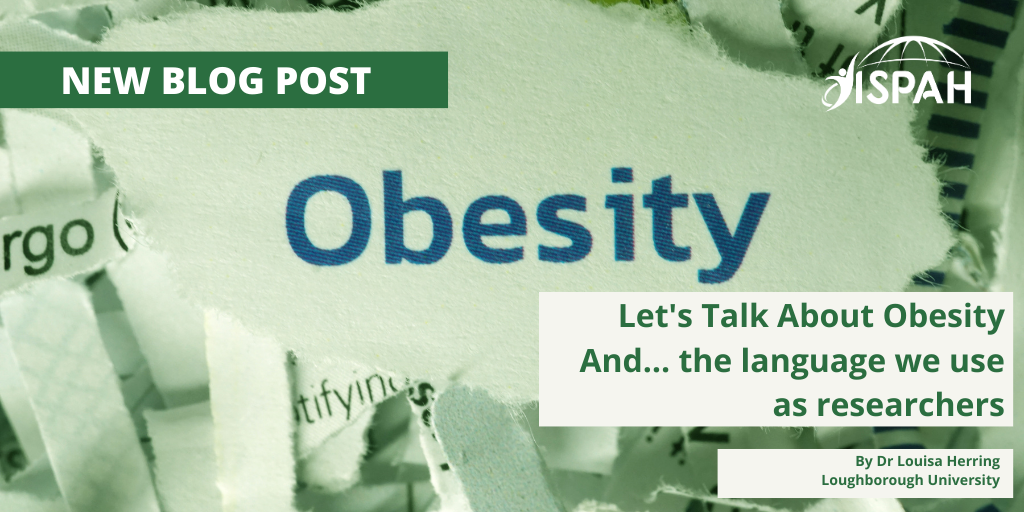This World Obesity Day, Dr. Louisa Herring is highlighting the important role of researchers in shaping conversations around obesity and eliminating weight-based stigma and discrimination, with a special focus on the 24-hour physical Behaviors.
Obesity is a complex condition. By increasing the understanding of the multiple contributing factors of obesity (genetic, environmental, economic, psychological, sociocultural), researchers can reduce the misconception that obesity results solely from lifestyle and food choices. The importance of person-first language and the inclusion of people with lived experience throughout all stages of the research lifecycle is a necessity.
Why Research Responsibility Matters
Researchers have the opportunity to play a fundamental role in framing discussions and addressing obesity related stigma, through advocacy, increasing awareness, and influencing policies and public perceptions. It is crucial that we recognise the impact of language, messaging, and the overall narrative on individuals living with obesity and society as a whole.
A Collaborative Approach
An emphasis on fostering a collaborative approach, whether it be the development of research or simply spreading the word, is essential. When developing obesity-related research and materials, researchers should aim to use a collaborative approach to enable more inclusive and effective solutions. Including people with lived experience enhances understanding and empathy, promotes inclusivity, unites diverse perspectives and breaks down stigma and stereotypes. This is even more important in physical activity research because of the barriers people living with obesity often report when becoming more physically active. These include physical discomfort/ pain, weight-related stigma or embarrassment, varying ability levels/ knowledge, low motivation and other associated co-morbidities.
The role of physical activity and the 24-hour physical Behavior research
Our 24-hour day comprises a sequence of movement Behaviors ranging from limited or no movement all the way to high-intensity activities. Recent international guidelines developed by the Leicester Lifestyle Health Research Group at the Leicester Diabetes Centre have called these movement Behaviors the five S’s: sleep, sitting, stepping, sweating and strengthening. These Behaviors are all intrinsically linked, are key components of a healthy
lifestyle, and how we communicate their importance matters. As researchers we should be emphasising the multiple health benefits of becoming more active whilst optimising sleep and sitting time. Promoting these 24-hr movement Behaviors will bring overall physical and psychological well-being to a focus rather than weight management specifically. Considering physical Behaviors over the 24-hour day offers a broader spectrum of interventional opportunities to induce overall health benefits and is an important approach to overcoming physical activity related barriers and building confidence. Small regular changes to our activities throughout the 24-hour day, even while we sleep, can make a huge impact on our long-term health. A person-centred approach to support people living with obesity is important; individual preferences, motivations and circumstances should inform choice.
Using inclusive language and images
Words and imagery matter. Using language to empower and inspire, avoiding stigmatising terms and stereotypes that perpetuate harmful narratives is a goal. Person-first language and the avoidance of dehumanising people is vital, avoiding imagery using only bodies, ill-fitting clothes or fast food references. ‘Obese’ should never be used to describe a person or group, instead using ‘people with obesity’ and ‘populations living with obesity’. In this rapidly advancing research area, the correct terminology is essential to change the way obesity is addressed in society.
This World Obesity Day, let us take action together and lead by example. As researchers we can commit to sharing obesity knowledge responsibly, advocating for evidence-based solutions, facilitating a collaborative approach and leading by example through words and actions.




